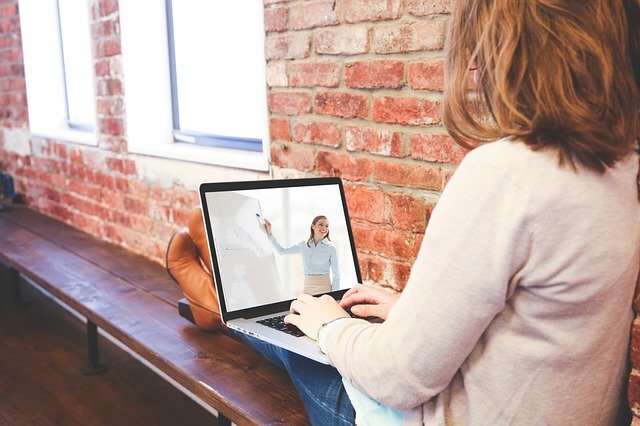Research concludes that remote learning might not be a bad thing

Remote and blended approaches to teacher education can be as effective as face-to-face approaches concludes a new study from the University of Birmingham.
The new report by Dr. Thomas Perry from the University of Birmingham's School of Education highlights how in March 2020 many teacher educators were forced to expand their remote learning provision and, in some cases, get to grips with remote teacher education for the first time.
The research examined the evidence and debate within the research literature about whether remote and blended teacher education can be effective and how. It suggests that the tools and technologies of blended and online learning can be used to bring together teaching practice, pupil learning, and new approaches for assessment, discussion and reflection. These may enhance and become a fixed part of teacher education practice in medium in the long-term.
Research lead, Dr. Thomas Perry said, "The literature we have reviewed, suggests that remote and blended teacher education approaches show considerable promise and may have distinct advantages as well as disadvantages relative to solely face-to-face approaches. At the moment the evidence base is not strong, but what we have is encouraging. Remote and blended approaches to teacher education already are and I think are likely to increasingly become important parts of the teacher education landscape in the future. The overall reading of the literature is that there is no reason why remote and online teacher education cannot achieve principles of effective learning design in teacher education such as an orientation to pupil outcomes, differentiation for teacher starting points, support for high quality collaboration and reflective practice."
Like the recent EEF review on Remote Professional Development, researchers on the project conclude video technology should be embraced as it has the potential to bring classroom interactions into a teacher education space without the expense of face-to-face observations, especially during the current COVID-19 pandemic. Similarly, it provides flexibility around timings and online approaches which can help teachers fit learning around their professional commitments and school timetables, avoiding the need to use weekend days for group activity and better fit with personal circumstances.
However, remote teacher education approaches have their challenges such as when it comes to high-quality collaboration in a remote and blended space. A key concept is that of presence, which appears to be possible to achieve but needs careful consideration when designing remote and blended teacher education, to avoid high participant attrition or overly-passive engagement.
Similarly, there are challenges with accessibility when using technology, ranging from the basics of getting things working, to difficulties related to differing expectations around participation, and preconceptions. Teacher educators must work to establish and familiarize participants with formal or informal rules and etiquettes of online teaching which can influence engagement and effective participation.
The report concluded remote and online teacher education can achieve the principles of effective learning design in teacher education. The small evidence evaluation effectiveness of online and blended programs suggests that remote and blended teacher education programs can, and often do, have an impact on teacher outcomes, and can, but often don't have an impact on student outcomes in large numbers (but the same can be said of face-to-face programs).
The rapid review which was completed over the course of about four weeks, obtained and screened 7,354 research papers from five search databases, containing dozens of library collections.
As well as its analysis of effectiveness, the review identified and described six general modes of online or blended teacher education:
Lectures, workshops, seminars, discussion groups or conferences.
- Coaching and mentoring
- Classroom observations with feedback and/or discussion
- Resource bases or repositories
- Platforms and self-study programs
- Virtual reality spaces or simulation
The study's final report, "Teacher Education Modality Rapid Review Modes, Affordances and Evidence on Remote and Blended Initial and Continuing Teacher Education," is based on inspection and analysis of 22 reviews and reports, 24 empirical studies and 19 background and wider pieces.
More information: Teacher Education Modality Rapid Review Modes, Affordances and Evidence on Remote and Blended Initial and Continuing Teacher Education: thomasperryinfo.files.wordpres … -review-1.9.2020.pdf
Provided by University of Birmingham




















